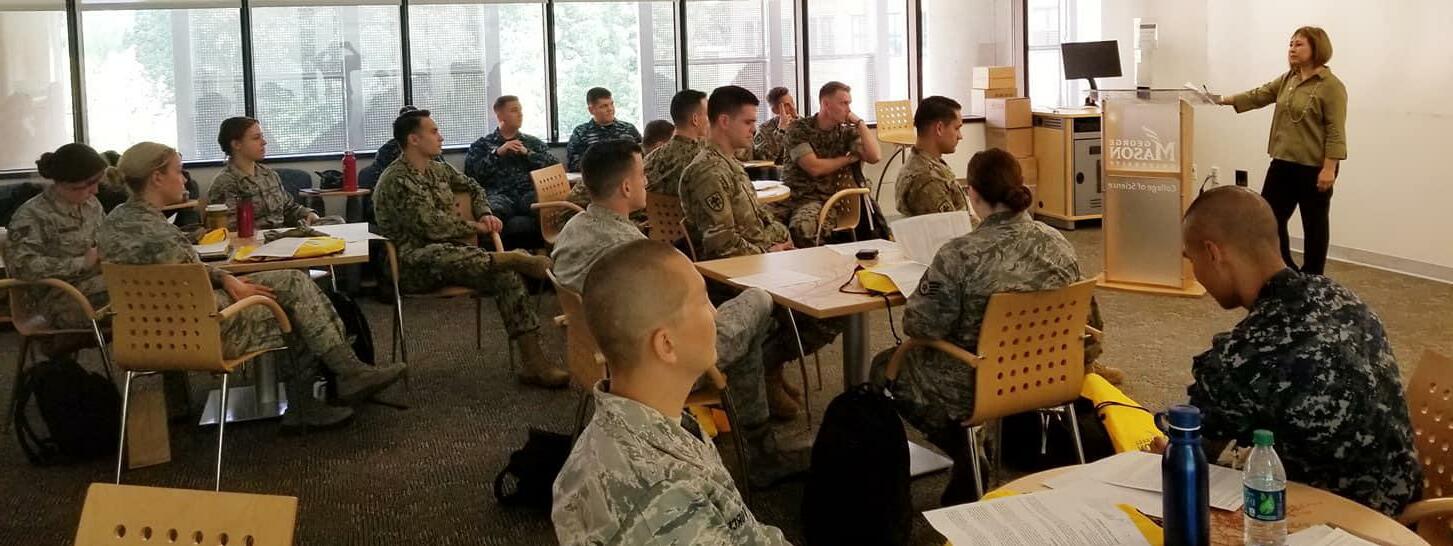
1 minute read
Combat Casualty Care


Antimicrobial Peptides Barney Bishop and Monique van Hoek’s labs are working together to discover and test novel synthetic peptides with potent antimicrobial and anti-biofilm activity that also help wounds heal. The new compounds are inspired by antimicrobial peptides (AMPs) that contribute to the robust innate immunity of Komodo dragons and alligators. A novel bioprospecting-based approach sequesters AMPs from the reptiles’ biological samples for down-stream analysis and modification. The leading candidate uncovered thus far promotes rapid wound closure, works against a broad spectrum of bacteria, and can be incorporated into a topical gel or dressing for combat wounds and burns.
Acute Lung Injury Therapeutic
Mikell Paige’s research targets novel treatments for
Acute Lung Injury (ALI) to prevent progression to severe Acute Respiratory Distress Syndrome. The lab is designing pharmaceuticals for warfighters at risk of needing prolonged critical care support, such as mechanical ventilation. The drug currently under development is an immunomodulatory agent that reduces neutrophil and leukocyte infiltration in the peri-bronchial areas in murine models for ALI, but does not induce immunosuppression or susceptibility to pulmonary infection.

Smart Tourniquet A new device developed by Nathalia Peixoto’s lab can deliver real-time feedback in a training or battlefield environment to assist first responders with properly securing a tourniquet to stop external bleeding and provide rapid treatment. The light-weight, low-power, adaptive embedded system is comprised of a multichannel pressure sensing polymers, microcontroller, and a stethoscope. This device meaures when arterial pulse disappears and the time until it is successfully applied. 11









